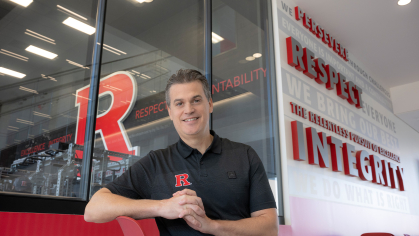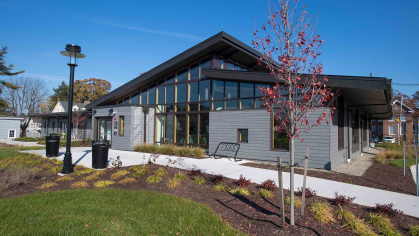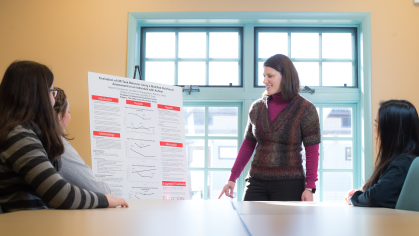
Graduate School of Applied and Professional Psychology
Training the Next Generation of Mental and Behavioral Health Scholar-Practitioners
Preparing tomorrow’s leaders to make a positive impact on the profession and the community, the Graduate School of Applied and Professional Psychology (GSAPP) at Rutgers University–New Brunswick provides the unparalleled clinical training and academic learning needed for a career in psychology. Study with distinguished, competent and compassionate faculty and gain the skills and experience you need to make a meaningful difference in the lives of individuals and families, and within groups, populations, organizations and society-at-large.
Students, Faculty, and Staff
Alumni Around the Globe
Total Active Funding
(across grant periods)
Years of Making an Impact Since our Founding
Establishment of Psychological Clinic
Spotlight: School Psychology
The Department of School Psychology at GSAPP consists of a vibrant group of scholars, practitioners, and students who are dedicated to highly intensive training and research in the use of empirically-based assessment, intervention, and consultation practices. Students are introduced to a wide array of contemporary, cutting-edge theoretical models, and professional practices.
The School Psychology PsyD Program is among the strongest in the nation—#1 in total grant funding and citations, and #10 in articles among 52 peer doctoral programs. The program prepares psychologists for professional practice with children/youth in schools and other community settings, emphasizing integration of scientific knowledge with innovation in the delivery of psychological services to individuals, families, groups, and organizations.
4+1 Program (Accelerated Bachelor's to Master of Applied Psychology)
The Rutgers GSAPP 4+1 BA/MAP Program offers qualified Psychology majors the opportunity to earn both a Bachelor of Arts and a Master of Applied Psychology degree within five years. By integrating undergraduate and graduate study, the program enables students to save time, reduce costs, and gain early exposure to advanced coursework and applied training.
This accelerated pathway equips graduates with the knowledge, skills, and professional preparation necessary for careers in mental health and further doctoral study. Students in the 4+1 program also have the option to complete additional coursework designed to prepare them for the National Counselor Examination (NCE), an important step toward professional counseling licensure.
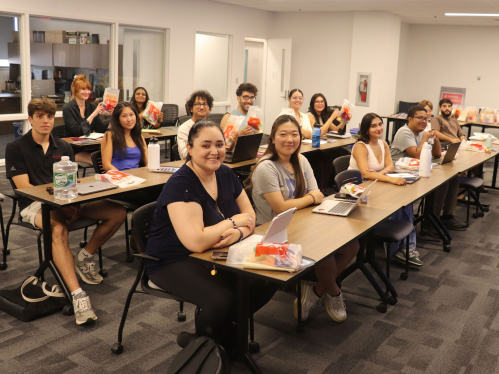
Spotlight: Organizational Psychology
Our doctoral (PsyD) and master's (PsyM) Organizational Psychology programs embody a scholar-practitioner model bridging theory and science with applied psychology. The program is delivered in a hybrid manner, including mostly online coursework with on-the-ground training opportunities. Students have an option to develop a course plan to meet their personal, professional, and academic goals.
The practice of organizational psychology consists of intervening with organizations to raise performance, enhance fairness and equity, and more. Organizational psychologists work within the context of organizations, although interventions may focus on individuals, pairs of individuals, groups, combinations of groups, or whole organizations.

Rigorous. Thorough. Rewarding.
With programs accredited by the Commission on Accreditation of the American Psychological Association (APA), the Graduate School of Applied and Professional Psychology offers you access to a host of research and clinical opportunities, plus a pathway to professional licensure through foundational and specialized courses that integrate knowledge with innovation in the delivery of psychological services.
of 2024 Grads are Working in the Field or Pursuing Advanced Degrees
American Psychological Association (APA) Internship Match Rate
Average # of Clinical Hours Students Perform each Academic Year
Student Spotlight
Vi Phung (Organizational PsyD Student)
"I’m truly grateful to be part of GSAPP’s Org Psych program because of its values and meaningful impact. In every course, my peers and I are encouraged to openly share our perspectives and provide constructive feedback to one another. This program equips me with a strong research foundation and the applied skill set needed to translate research into practical solutions that improve workplace well-being."

"I’m grateful for the opportunity to bring in a culturally unique perspective..."
Kevin Eslava (Clinical PsyD Student)
Kevin completed his two-year term on the Council of University Directors of Clinical Psychology (CUDCP) board as a student representative. The CUDCP is charged with promoting advancement of graduate education within the field of clinical psychology.
"Being selected as a student representative for the CUDCP means a seat at the table as a future clinician of color, as a Latino, as a first-gen. I’m grateful for the opportunity to bring in a culturally unique perspective that reflects a diverse future generation of psychologists. My hope is that by filling this position, I can help advocate for future clinicians and further highlight the importance of cultural representation within the field of psychology."

"It was truly an honor to represent GSAPP..."
Jaylene Sosa (Clinical PsyD Student)
Jaylene represented GSAPP as a student delegate at the National Council of Schools and Programs of Professional Psychology conference. She presented on professional psychology issues with other delegate students and spoke about her career interests with field practitioners.
"It was truly an honor to represent GSAPP. I look forward to doing it again next year!"
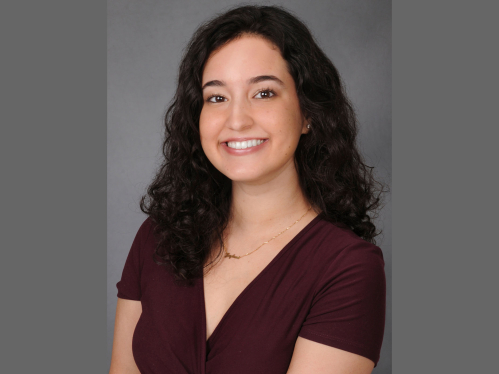



Discover GSAPP
From clinical training to community engagement, there’s plenty to get excited about at GSAPP. Learn from a faculty of distinguished professors and tap into a strong alumni network with connections across the profession.

